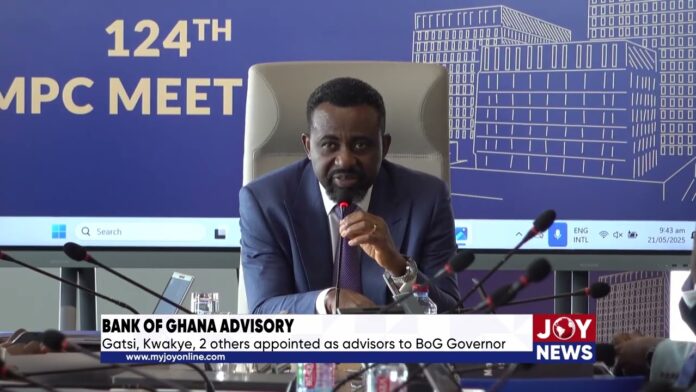Governor of the Bank of Ghana, Dr. Johnson Asiama, has announced that Ghana’s economic indicators point to a rebound in activity, driven largely by strong exports, increased private sector credit, and a surge in construction.
Speaking at the 9th Ghana CEO Summit and Expo, Dr. Asiama stated that the economic outlook remains strong, supported by key metrics such as the Ghana Purchasing Managers’ Index, which recently crossed the 50-point benchmark. “This shows that output and new orders are rising, signalling improved growth prospects,” he noted.
Delivering his keynote address on “Monetary Policy, Financial Stability and Innovation: Anchoring Ghana’s Economic Reset for Sustainable Growth”, the Governor highlighted a renewed sense of optimism across the economy.
“Our latest confidence survey shows the highest levels in seven years, driven by easing inflationary pressures and positive macroeconomic expectations,” he revealed.
Cedi Strength Not Artificial – Governor
Touching on the stability of the Ghanaian cedi, Dr. Asiama dispelled speculation that the Bank is propping up the currency using its international reserves.
“The strengthening of the currency reflects a blend of disciplined monetary policy, tailored FX auction reforms, enhanced remittance channels, and stricter market surveillance – not mere short-term interventions,” he clarified.
He also announced that effective June 5, 2025, the Cash Reserve Ratio requirement will be reviewed to better align foreign exchange risk and improve liquidity planning.
Vigilance Amid Global Risks
Dr. Asiama cautioned that despite gains, Ghana remains exposed to external risks. “We remain alert to vulnerabilities – including disinflation divergence in global financial markets and the proposed 5% U.S. tax on outbound remittances,” he warned.
Proposed BoG–CEO Forum
To enhance policy collaboration and responsiveness, the Governor proposed the establishment of a Bank of Ghana–CEO Forum to foster dialogue and gather market intelligence.
“This is not about co-authoring policy, but about ensuring that our decisions are informed by a grounded understanding of how they affect investment, credit, and enterprise,” he said, drawing parallels with regional CEO councils used by the U.S. Federal Reserve.
Governor’s Vision for the Sector
Dr. Asiama also shared six key priorities for the banking sector:
-
A modern, transparent, and predictive monetary policy framework
-
A credible foreign exchange market anchored in sound reserves and reduced volatility
-
Strengthened regulation for a stable and responsive banking system
-
Innovation and inclusion through fintech and digital finance
-
Better alignment between monetary and fiscal policy without undermining central bank independence
-
Restoration of the Bank’s balance sheet to preserve institutional credibility
“These priorities reflect not just institutional responsibility, but the demands of our time,” the Governor concluded.
Source: Adomonline


